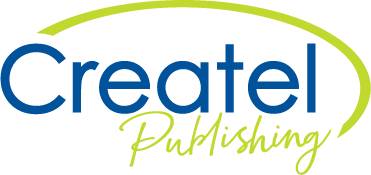Making the transition to and from homeschooling easier for students and families in your school communities
Has your school been losing students to homeschooling? Since 2022, there has been a notable increase in families opting for homeschooling, with an estimated 42,452 students registered for home education across Australia.
This trend has sparked discussions about the reasons behind this shift, the regulations surrounding registration and the welfare of students, the closely guarded homeschool communities, and the pros and cons of leaving mainstream schooling.
What we have noticed, however, is that there isn’t much information for educators or families about how schools can support students who are transitioning both to and from homeschooling. Although the hope is that students who are taken out of mainstream schools will thrive in their home environments, it might not always be the case. Mainstream school educators will play a pivotal role in helping their students to transition into homeschooling. And should students need to come back, they will need extra attention from educators to ensure that they adjust well in the classroom.
Why Are Families Choosing Homeschooling?
Several factors contribute to the growing popularity of homeschooling in Australia, such as:
- Personalised Learning
Homeschooling allows parents to tailor educational experiences to their child’s unique learning style, interests, and pace, fostering a more customised approach to education. It has also been very popular in religious communities who want their children to engage in specialised religious education.
- Concerns About Traditional Schooling
Issues such as bullying, dissatisfaction with the standard curriculum, and the perceived inability of traditional schools to cater to specific learning needs have led some parents to consider homeschooling as an alternative.
- Health and Safety Considerations
The COVID-19 pandemic has heightened health concerns, prompting families to opt for homeschooling to ensure a controlled and safe learning environment. The pandemic also showed families that home education was a viable option for them, as parents and children enjoyed at-home learning, and noticed better academic achievement because of one-on-one teaching and learning.
- Flexibility
Homeschooling offers families the flexibility to design their schedules, integrate travel, and incorporate real-world experiences into their children’s education.
Legal Requirements and Registration
In Australia, homeschooling is legal but regulated differently across the states and territories. Parents are required to register their children for homeschooling with the relevant educational authority. As of the 30th of June 2024, there were 11,240 students in 7,716 households registered for home education in Victoria alone. However, research suggests that for every student that is registered, there is a student who isn’t. Talks about increasing wellness checks and observing home educators are encouraged by some, but others raise the concern that this will drive more students and families underground, discouraging them from registering their children altogether.
How Schools Can Support Transitions to Homeschooling
Schools play a pivotal role in assisting families who decide to transition to homeschooling. They can support this transition by:
- Providing Information and Resources
Schools can offer guidance on legal requirements, curriculum standards, and available homeschooling resources. Sharing information about local homeschooling groups and support networks can also be beneficial.
- Facilitating Open Communication
Encouraging discussions between parents, teachers, and administrators can help address concerns and ensure a smooth transition. Schools can offer insights into the student’s learning style and progress, aiding parents in developing effective homeschooling strategies.
- Offering Transitional Support
Some schools may provide part-time enrolment or access to extracurricular activities, allowing students to maintain social connections and participate in group learning experiences.
Supporting Students Transitioning Back to Traditional Schooling
When families decide to transition from homeschooling to traditional schooling, schools can implement several strategies to ease this process:
- Assessment and Placement
Conducting assessments can help determine the appropriate grade level and identify any areas where the student may need additional support. This ensures that the student is placed in a suitable learning environment.
- Orientation Programs
Introducing orientation sessions can familiarise students with the school’s routines, expectations, and culture. Pairing returning students with peer buddies can also help with social integration.
- Ongoing Support
Providing access to counselling services, academic support, and regular check-ins can help address any challenges the student may face during the transition. Encouraging participation in extracurricular activities can also promote social engagement.
Resources and Support Networks
Numerous resources are available to assist homeschooling families in Australia, such as:
- Curriculum Providers
Organisations like My Homeschool offer structured curriculum packages that align with Australian educational standards, providing guidance on what to teach and how to teach it.
- Support Networks
The Home Education Association (HEA) is a not-for-profit organisation that supports home educators by offering resources, workshops, and a community for sharing experiences.
- Online Communities
Platforms such as ‘That Homeschool Life’ provide resources, printables, and blog posts to support and inspire homeschooling families.
- Government Resources
Educational authorities, like the Victorian Registration and Qualifications Authority (VRQA), provide toolkits and practical advice to enhance teaching practices in areas such as reading, writing, and speaking.
We hope that this information was helpful and can take some of the pressure off both traditional and home school educators. Ensuring that all students receive the education that best suits their individual needs will keep our communities thriving.
Resources:
https://juiceboxhomeschool.com/transitioning-from-public-school-to-homeschool
https://www2.education.vic.gov.au/pal/home-schooling-and-partial-enrolments/policy


Leave a Reply